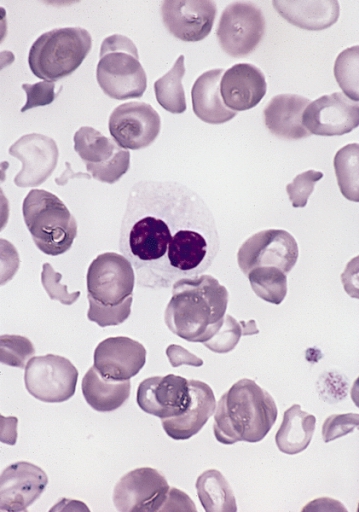
US-based Seattle Genetics has started a Phase I/II clinical trial of vadastuximab talirine (SGN-CD33A; 33A) in combination with azacitidine (Vidaza), a hypomethylating agent (HMA), in patients with previously untreated myelodysplastic syndrome (MDS).
Patients with MDS do not produce enough healthy blood cells in their bone marrow.

Discover B2B Marketing That Performs
Combine business intelligence and editorial excellence to reach engaged professionals across 36 leading media platforms.
33A is an antibody-drug conjugate (ADC) targeted to CD33 using the company’s new technology, which includes an engineered cysteine antibody (EC-mAb) stably linked to called a pyrrolobenzodiazepine (PBD) dimer, a potent DNA binding agent.
Azacitidine is commonly used in the treatment of MDS, which is known to be a precursor to acute myeloid leukemia (AML), and expresses CD33.
Seattle Genetics Research and Development executive vice-president and chief medical officer Dr Jonathan Drachman said: "Most newly diagnosed patients with intermediate or high risk MDS are ineligible for allogeneic stem cell transplant due to age, comorbidities or lack of appropriate donor.
"For these patients, novel therapies are urgently needed to prolong survival and delay disease progression into AML.

US Tariffs are shifting - will you react or anticipate?
Don’t let policy changes catch you off guard. Stay proactive with real-time data and expert analysis.
By GlobalData"In our Phase I AML clinical trial evaluating 33A plus HMAs (azacitidine or decitabine), we have observed encouraging tolerability and depletion of blasts from the bone marrow in many patients, and we recently presented preclinical data demonstrating synergistic activity of 33A plus HMAs.
"Expanding our clinical evaluation of 33A in MDS is part of a broad clinical development strategy to establish 33A as the foundation of care for patients with myeloid malignancies."
Around 130 patients will be enrolled in the Phase I/II trial at approximately 35 centres across North America.
The trial is designed to evaluate 33A administered with azacitidine in patients with previously untreated International Prognostic Scoring System (IPSS) Intermediate-2 or high-risk MDS.
The Phase I trial will identify the recommended dose of 33A when combined with azacitidine, while Phase II will evaluate azacitidine with or without 33A, comparing overall response rate between the two treatment arms.
The trial’s secondary endpoints include evaluation of safety, best response, duration of response, progression-free survival (PFS) and overall survival (OS).
Apart from the MDS trial, the company is evaluating 33A across multiple lines of therapy in patients with AML.
Image: Blood smear from an adult female with a myelodysplastic syndrome related to radiotherapy and chemotherapy for Hodgkin disease. Photo: courtesy of Patho.





